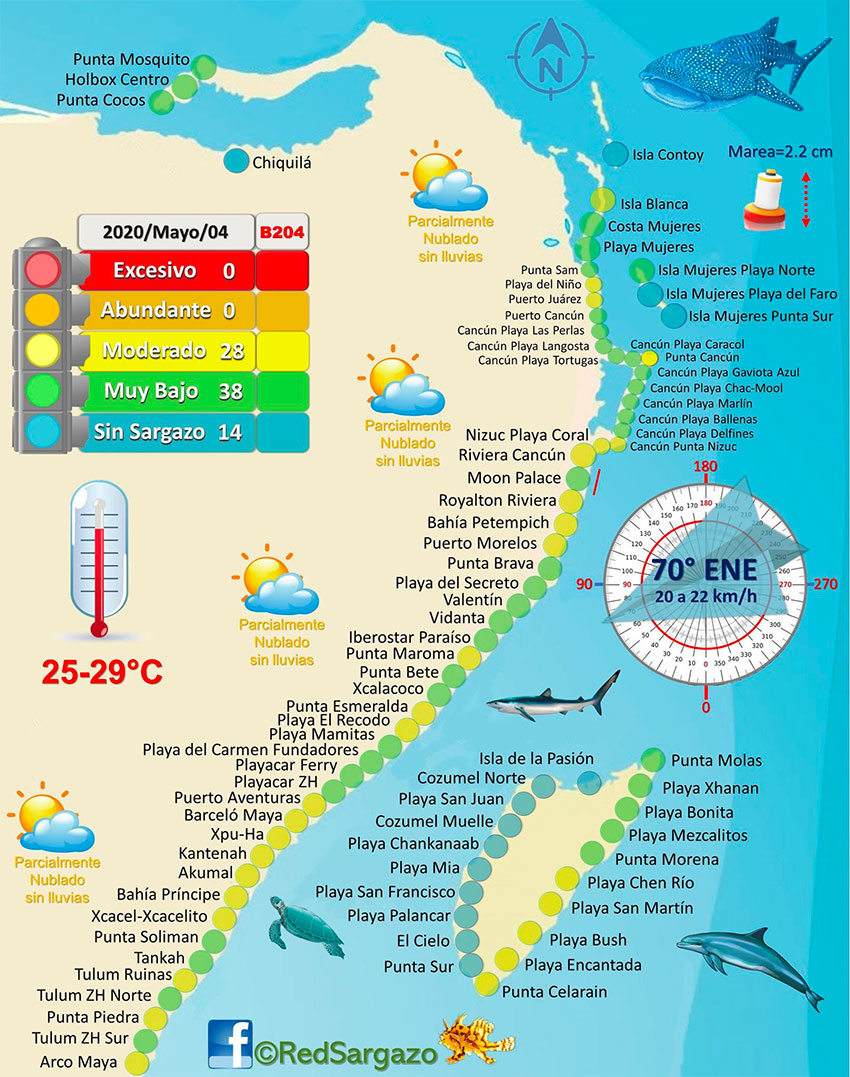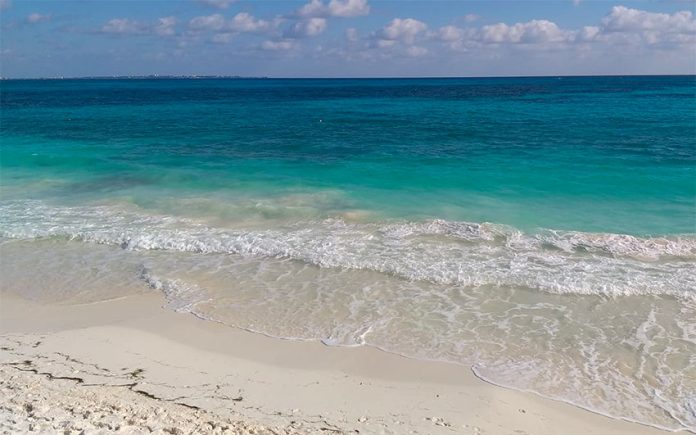Before the coronavirus pandemic, insecurity and sargassum vied for the title of biggest deterrent to tourism in Quintana Roo.
Now, as Mexico and countries around the world confront the Covid-19 crisis, the smelly, unsightly seaweed is returning to the beaches of the Caribbean coast state.
Large amounts of sargassum invaded the beaches of Isla Holbox – an island located off the northern tip of the state – on Monday, leaving both sand and seawater discolored. The unwelcome arrival was the first of the annual sargassum season, which normally runs for several months.
Sargassum also began washing up on beaches in the Cancún area last week, although not in large amounts.
But plenty more seaweed is set to wash up on Mexico’s Caribbean coast beaches in the months ahead. The Optical Oceanography Laboratory at the University of South Florida (USF) reported in March that there was a considerable increase in sargassum density in the Atlantic Ocean off the coast of the Americas.

The proliferation of the macroalgae is directly related to warmer sea temperatures in the world’s second largest ocean.
The USF lab said that there is a high risk that massive amounts of sargassum will wash up on Mexican beaches, especially those located along the Caribbean coast of Quintana Roo.
“This situation may continue into summer, and the overall amount is likely to be similar to that in 2015,” the lab said.
The quantities are not predicted to exceed the record levels seen last year, but the news is still a blow for the tourism sector, which is hoping that visitor numbers will rebound quickly starting as early as next month. The coronavirus crisis has devastated Mexico’s tourism industry.
However, with Cancún seeing a drop in confirmed coronavirus cases, the resort city’s hotel association last week announced an aggressive new campaign to bring visitors back to the region. Its success, however, may not only depend on keeping the city’s coronavirus outbreak under control but also having clean beaches in Cancún and the Riviera Maya region.
To that end, Navy Minister Rafael Ojeda held a virtual meeting last week with Quintana Roo Governor Carlos Joaquín and the mayors of six coastal municipalities during which they discussed strategies to prevent the arrival of sargassum and the plan to clean up the seaweed that does make it to the beach.
María Lezama Espinosa, mayor of Benito Juárez, the municipality where Cancún is located, said that the aim must be to keep beaches clean during the coronavirus emergency period so that they can be reopened as soon as restrictions are lifted.
The navy, which last May was given responsibility for combatting the seaweed’s arrival, and other authorities have used sargassum-gathering vessels and barriers to prevent the weed from reaching beaches but large quantities have nevertheless continued to wash up on shore.
As a result, seasonal demand for sargassum shovelers has been high and is expected to remain so as hotel owners, tourism operators and authorities strive to keep beaches as clean as they appear in glossy travel brochures.
Source: El Universal (sp)
